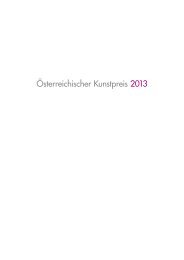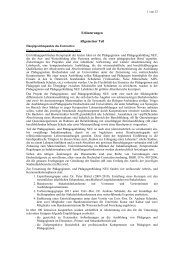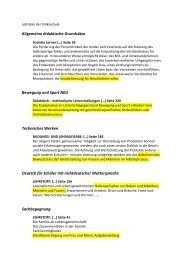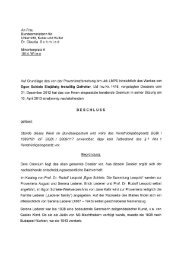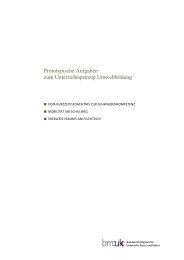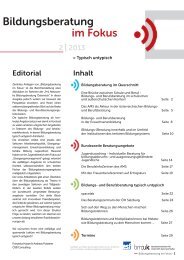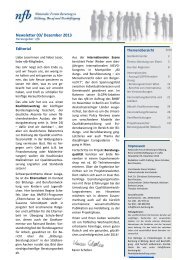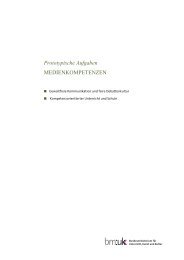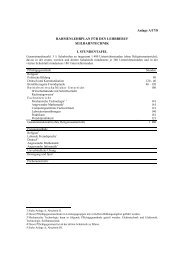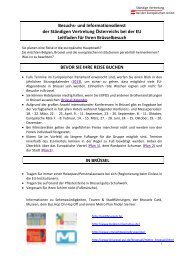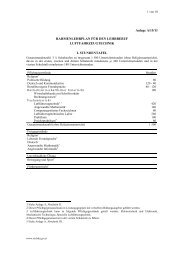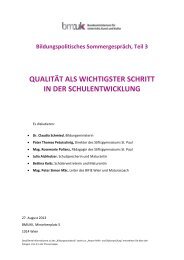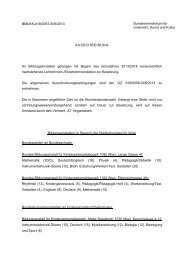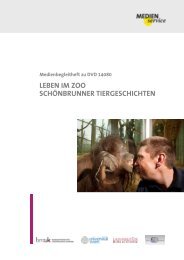Innovative Film Austria 10/11
Innovative Film Austria 10/11
Innovative Film Austria 10/11
You also want an ePaper? Increase the reach of your titles
YUMPU automatically turns print PDFs into web optimized ePapers that Google loves.
<strong>Austria</strong>n fictions – often with a pronounced transnational focus, because of coproduction<br />
financing – also dwell in an artful, open ambiguity. Patric Chiha’s<br />
Domaine is about the fluidity of ages, behaviours, genders and social roles,<br />
especially in the erotic realm, pitting modern sensibilities against a 1950s-style<br />
melodramatic framework. And finally, La Pivellina by Tizza Covi and Rainer<br />
Frimmel, with its well-judged nod to the Dardennes in Belgium, uses a realist<br />
manner in order to explore what it means for people – children, the unemployed,<br />
various non-citizens on the margins – to be without a recognized identity,<br />
excluded but strangely free …<br />
And is this not the extraordinary fate of all progressive cinema today, and<br />
certainly so in the splendid example of <strong>Austria</strong>: caught up in the endless struggle<br />
for acknowledgement, yet happy for some free space and time in which to invent<br />
the art, and the world, of tomorrow?<br />
Melbourne, September 20<strong>10</strong><br />
Associate Professor Adrian Martin is Head of <strong>Film</strong> and Television Studies,<br />
Monash University, Melbourne, Australia. He is the author of five books<br />
and hundreds of book chapters, magazine essays and film reviews. He co-edited<br />
the journal Rouge for seven years, as well as the book Movie Mutations (British<br />
<strong>Film</strong> Institute 2003).



